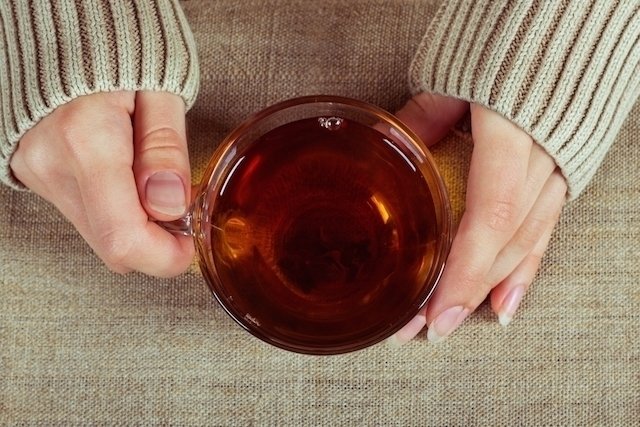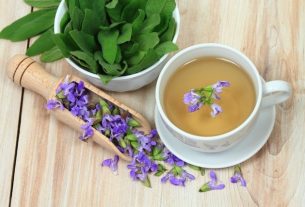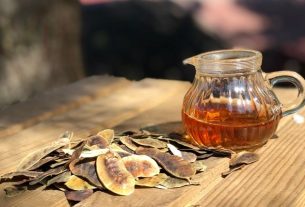Porangaba is a fruit that has diuretic, cardiotonic, antiviral, diuretic and stimulating properties, and can be used to accelerate metabolism, promote blood circulation, combat viral infections, especially herpes, aid in weight loss and prevent the development of diseases. cardiac.
This fruit, whose scientific name is Cordia salicifoliacan be consumed in the form of tea or capsule, however its use should not replace the treatment recommended by the doctor, and it is important that it is used as advised by the doctor or herbalist.

Porangaba contains allantoin, caffeine and tannins in its composition and, therefore, has stimulatory, cardiotonic, appetite suppressant, diuretic, antiviral and antioxidant properties. Therefore, porangaba can have several health benefits and be recommended to help various situations, such as:
1. Help with weight loss
Due to its diuretic and metabolism-stimulating properties, mainly due to the presence of caffeine, the use of this fruit can be indicated to help with weight loss, because it reduces the liquid that may be accumulated in excess, in addition to promoting a reduction in the accumulation of fat in the body.
Furthermore, porangaba also appears to inhibit appetite and, therefore, can also help with weight loss for people who have difficulty controlling their hunger.
2. Prevent heart disease
Porangaba is capable of promoting improved blood circulation, in addition to reducing fat deposits in the arteries and helping to control cholesterol levels. Furthermore, as it contains allantoin in its composition, it is also considered an antioxidant, which also helps prevent heart changes.
However, in the case of people who have already been diagnosed with heart problems, porangaba is not recommended, as it has a thermogenic effect and can cause an acceleration of the heart rate.
3. Treat herpes
Some studies have shown that porangaba has antiviral activity against type 1 herpes virus, inhibiting infection and its activation. However, these studies were carried out in rats and, therefore, more studies in people are needed to prove this effect.
4. Fight cellulite
By stimulating blood circulation, porangaba prevents fluid retention and has an antioxidant effect, helping to reduce cellulite.
5. Speed up metabolism
Due to its caffeine-rich composition, porangaba can act as a thermogenic, providing energy for the body and accelerating metabolism.
How to make porangaba tea
Despite being found in the form of capsules, porangaba is widely used in the form of tea, which is made mainly with its leaves. To do this, add 1 tablespoon of dry porangaba leaves to 200 mL of boiling water and leave for around 10 to 15 minutes. Then, it must be strained and drunk when it is warm.
It is important that the consumption of porangaba tea is recommended by a doctor, because the method of consumption may vary according to the situation. If it is indicated for weight loss, for example, 1 cup of tea may be recommended at least 1 hour before a meal, and it is important that the person has a healthy diet and practices physical activity so that weight can be lost. effectively.
Is it safe to use porangaba to lose weight?
Despite the various applications of porangaba, in 2010 ANVISA suspended advertising related to this fruit, because it was indicated that porangaba promoted weight loss only due to its diuretic function, in addition to its use in cases of obesity. morbidity and fluid retention in the extremities of the body.
Thus, as both obesity and fluid retention are situations that require medical monitoring and appropriate treatment, the use of porangaba should only be used for these purposes under medical guidance as a way of complementing treatment in some situations.
Possible side effects and contraindications
The use of porangaba is contraindicated for pregnant women, people who have heart or kidney problems and insomnia. This is because consuming large amounts of porangaba without medical advice can overload the kidneys, due to its diuretic effect, and can increase the heart rate, as it is rich in caffeine and is capable of accelerating metabolism and, therefore, This is also not recommended for people who have difficulty sleeping.
Bibliography
- HAYASHI, Kyoko; HAYASHI, Toshimitsu; MORITA, Naokata et al. Antiviral Activity of an Extract of Cordia salicifolia on Herpes Simplex Virus Type 1. Planta Med. Vol 56. 5 ed; 439-443,
- ANVISA. General Management of Advertising Monitoring and Inspection / GGPRO/ANVISA – List of Suspended Advertising (2001 to 2011) . Available at: <http://portal.anvisa.gov.br/documents/33864/284972/Lista_Propagandas_Suspensas_2011_2001_14022012.pdf/21937fe2-a789-4a02-9bc1-9c2d5e7d3b19>. Accessed on 14 Jul 2020
- FREITAS, Tiago LL; FOSCHERA, Jaqueline Ana.; SOUZA, Gabriela N. et al. Medicinal investigation of Cordia salicifolia: experience in the undergraduate nursing course. Nursing Magazine. Vol 9. 9 ed; 70-76, 2013
- ALEXANDRE, Karla P.; YASUDA, Flávio S.; MARQUES, Luis Carlos et al. Do guacatonga (Casearia sylvestris SW) and porangaba (Cordia salicifolia or Cordia ecalyculata Vell / boraginaceae) have an effect on weight loss?. Brazilian Journal of Natural Sciences. Vol 3. 1 ed; 2018

Sign up for our newsletter and stay up to date with exclusive news
that can transform your routine!
Warning: Undefined array key "title" in /home/storelat/public_html/wp-content/plugins/link-whisper-premium/templates/frontend/related-posts.php on line 12
Warning: Undefined array key "title_tag" in /home/storelat/public_html/wp-content/plugins/link-whisper-premium/templates/frontend/related-posts.php on line 13



